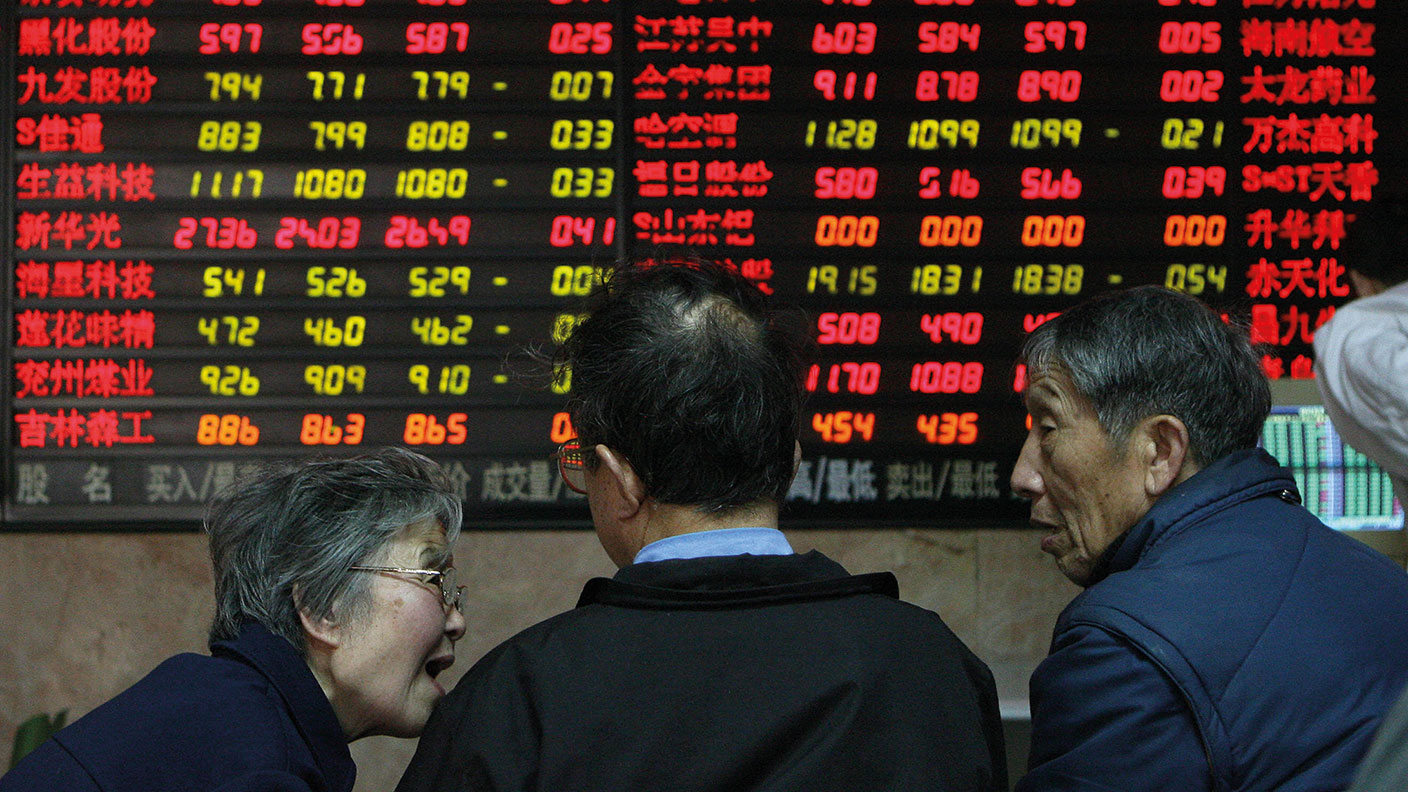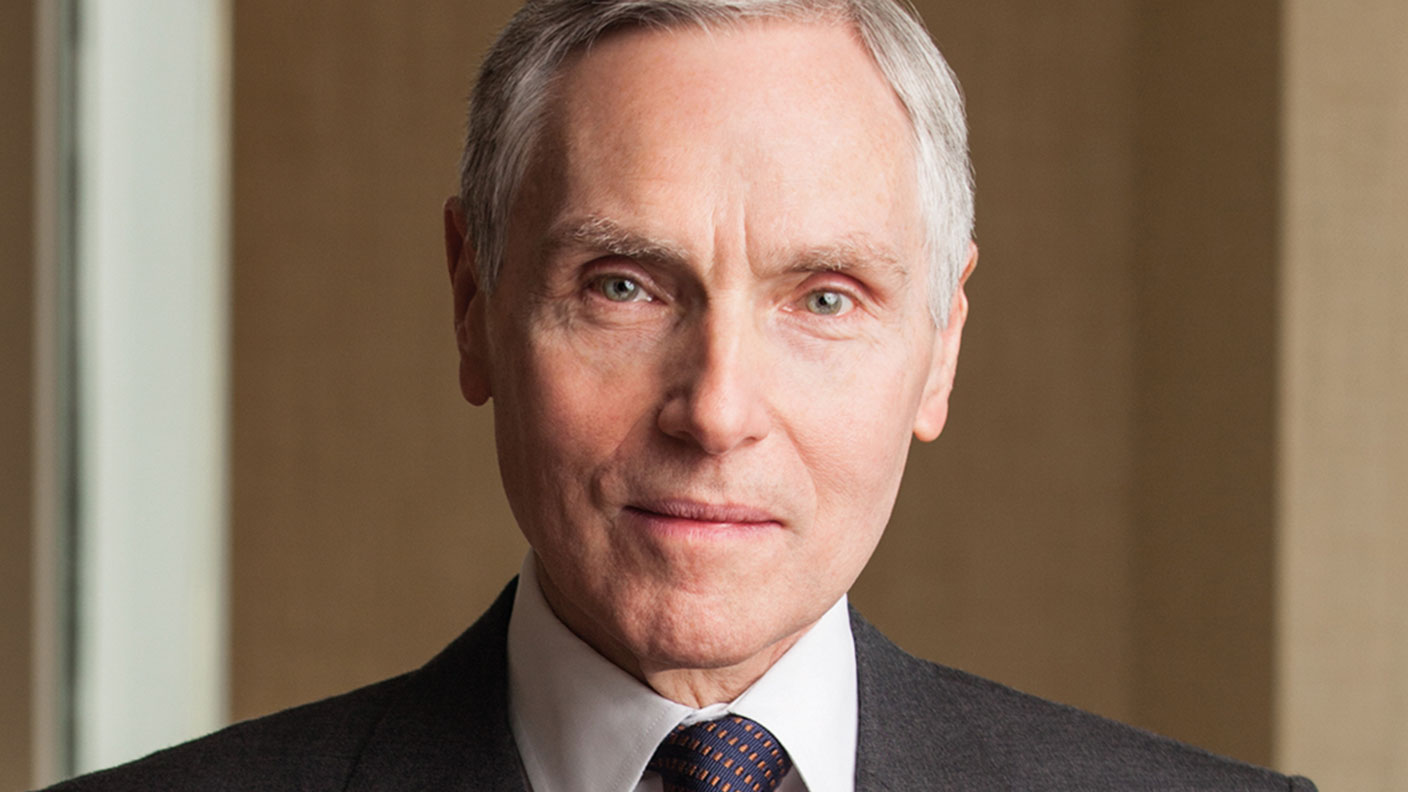What went wrong at Lehman Brothers
At $639bn, Lehman Brothers is the biggest bankrupt ever. Its collapse was fast followed by the sale of Merrill Lynch. So who’s left standing, and for how long? Cris Sholto Heaton reports.

Get the latest financial news, insights and expert analysis from our award-winning MoneyWeek team, to help you understand what really matters when it comes to your finances.
You are now subscribed
Your newsletter sign-up was successful
Want to add more newsletters?

Twice daily
MoneyWeek
Get the latest financial news, insights and expert analysis from our award-winning MoneyWeek team, to help you understand what really matters when it comes to your finances.

Four times a week
Look After My Bills
Sign up to our free money-saving newsletter, filled with the latest news and expert advice to help you find the best tips and deals for managing your bills. Start saving today!
Why did Lehman Brothers go bust?
The investment bank ran out of time. CEO Richard Fuld had been trying to raise more equity to support the firm for weeks either by selling assets, such as its Neuberger Berman asset-management unit, or by finding a deep-pocketed investor. But he tried to drive too hard a bargain. Buyers refused to pay the price he asked for Neuberger, while talks to sell a major stake to the Korean Development Bank (KDB) also failed, apparently because Fuld wanted more than KDB's proposed $15 a share. Once the KDB deal collapsed very publicly last week, the game was up. With more writedowns coming on its $70bn of realestate-related assets, and other market participants increasingly unwilling to do business with the firm, Lehman needed a white knight quickly.
Why couldn't it find one?
MoneyWeek
Subscribe to MoneyWeek today and get your first six magazine issues absolutely FREE

Sign up to Money Morning
Don't miss the latest investment and personal finances news, market analysis, plus money-saving tips with our free twice-daily newsletter
Don't miss the latest investment and personal finances news, market analysis, plus money-saving tips with our free twice-daily newsletter
Federal Reserve and Treasury officials and Wall Street executives tried to bash out a deal to save Lehman over the weekend, in much the same way that failed hedge fund Long Term Capital Management was bailed out almost ten years ago to the day. The proposal was to hive off around up to $85bn of souring assets in a separate vehicle (a bad bank'), supported by capital from other Wall Street firms. Meanwhile, the sound parts of Lehman would be bought by another firm. But other banks were reluctant to support the bad bank while the only two businesses genuinely interested in buying Lehman Bank of America and Barclays demanded government support on the grounds that they didn't have a full picture of what Lehman's problems were. The Treasury refused to provide this and the buyers walked away. Once that happened, Lehman had no option left except to file for bankruptcy.
Is this the same as Bear Stearns?
Not quite. Bear was forced to sell itself to JP Morgan because of an acute liquidity crunch no-one would lend to it. Lehman didn't have that problem; as a result of Bear's fate, the Federal Reserve began lending to investment banks as and when they needed to meet their short-term liquidity needs. Lehman's problem was more of an insolvency risk; the huge pile of real-estate-related loans and assets it piled up during the property bubble is worth considerably less than its face value. As Lehman continued to write them down, it needed to raise fresh equity to replace the losses and stay solvent.
Why did Merrill Lynch sell itself?
It looks like the chaos at the weekend convinced CEO John Thain that now was the time to find a new stable for its Thundering Herd' of brokerages. There was no doubt that with Lehman gone, the speculation and shorting would turn to Merrill, which, like Lehman, had plunged too deep into risky lending during the property bubble. By selling his firm a few days before he was absolutely forced to, Thain seems to have achieved a better (and more dignified) end for one of Wall Street's most famous names than Lehman or Bear, and secured his investors at least some payment for their shares.
How big is the Lehman problem?
At $639bn, this is the biggest bankruptcy ever, dwarving Worldcom (2002, $104bn). In investment bank terms, the collapse of junk-bond pioneers Drexel Burnham Lambert in 1990 was tiny at just $3.6bn. And banking has got more complex since then: Lehman holds derivatives contracts with a face value of $729bn (notionally the actual liability is probably 5% of that or less) and there will be a vast amount of work for Lehman's counterparties to unwind these. The authorities tried a netting session', where counterparties pair up contracts in which Lehman can be removed from the chain and the counterparties enter into new contracts with each other. But that is said to have had a negligible effect on the pile. Meanwhile, the sale of Lehman's real-estate assets will have a knock-on effect: if these are sold at depressed prices, other banks could be forced to writedown their holdings of similar assets. For this reason, everyone wants a controlled liquidation of Lehman, with no asset fire-sales.
Is this the end of the crisis?
No. Even as MoneyWeek went to press, the Fed took control of insurance giant AIG (see: Fed steps in again to head off meltdown). The bears' next target is probably Washington Mutual, the US's largest savings and loan association (similar to a UK building society); the credit markets are pricing it as a certain goner. A sale to JP Morgan which made an offer
in April looks possible. Wachovia has bad-loan problems and is often described as troubled'. However, as the fourth-largest banking chain in America, this one is probably too big to fail' and would be bailed out if necessary. But many small regional banks are clearly doomed.
Will any of the big five survive?
After the disappearance of three standalone, full-service investment banks in less than six months, there are questions about whether the entire business model is sustainable. These banks depend heavily on borrowing in the market and have few depositors; hence they're always vulnerable to a crisis of confidence.The two surviving ones Morgan Stanley and Goldman Sachs should be more stable than their fallen rivals. Neither plunged into real-estate lending in the manner of Bear, Lehman and Merrill, while their management seems more on top of things than Lehman's CEO Fuld and Bear's appallingly out-of-touch James Cayne. However, after Lehman and Merill's demise, markets are becoming more concerned about them.
Get the latest financial news, insights and expert analysis from our award-winning MoneyWeek team, to help you understand what really matters when it comes to your finances.

Cris Sholt Heaton is the contributing editor for MoneyWeek.
He is an investment analyst and writer who has been contributing to MoneyWeek since 2006 and was managing editor of the magazine between 2016 and 2018. He is experienced in covering international investing, believing many investors still focus too much on their home markets and that it pays to take advantage of all the opportunities the world offers.
He often writes about Asian equities, international income and global asset allocation.
-
 New PM Sanae Takaichi has a mandate and a plan to boost Japan's economy
New PM Sanae Takaichi has a mandate and a plan to boost Japan's economyOpinion Markets applauded new prime minister Sanae Takaichi’s victory – and Japan's economy and stockmarket have further to climb, says Merryn Somerset Webb
-
 Plan 2 student loans: a tax on aspiration?
Plan 2 student loans: a tax on aspiration?The Plan 2 student loan system is not only unfair, but introduces perverse incentives that act as a brake on growth and productivity. Change is overdue, says Simon Wilson
-
 Evergrande: Chinese property giant spooks global markets
Evergrande: Chinese property giant spooks global marketsNews Global markets fell this week as investors worried about the fate of Evergrande, China’s most indebted property developer, which is teetering on the brink of default.
-
 Seven firms ripe for a shake-up by activist investors
Seven firms ripe for a shake-up by activist investorsOpinion Activist investors have a reputation as asset strippers, but they perform a valuable role, says Matthew Lynn
-
 Tesco cashes out of the mortgage business
Tesco cashes out of the mortgage businessFeatures Tesco Bank has left the mortgage market by selling its £3.7bn loan book. Its 23,000 customers will be moved to the Halifax, a subsidiary of Lloyds.
-
 Forget the financial crisis: it’s time to bet on British banks
Forget the financial crisis: it’s time to bet on British banksCover Story Over a decade after the financial crisis, investors are still reluctant to consider British banks. But their worries are overblown and the stocks are cheap, says Matthew Partridge.